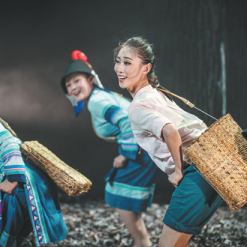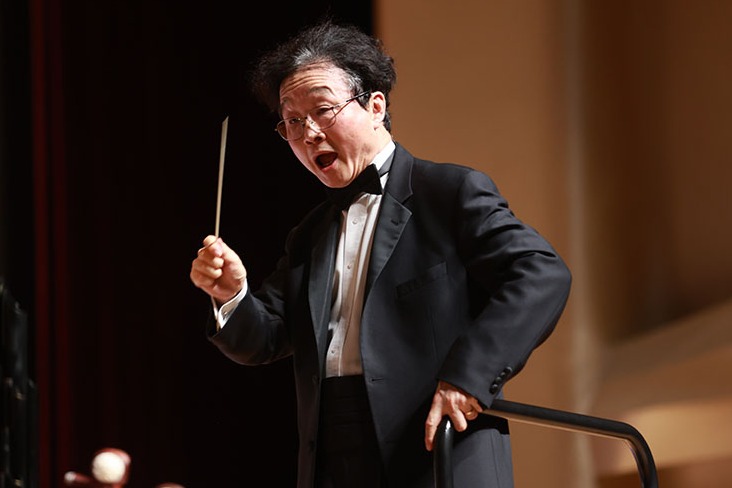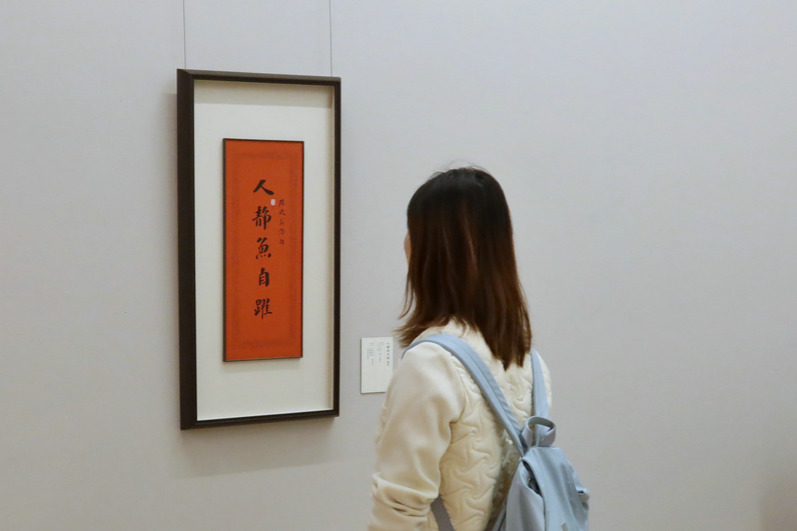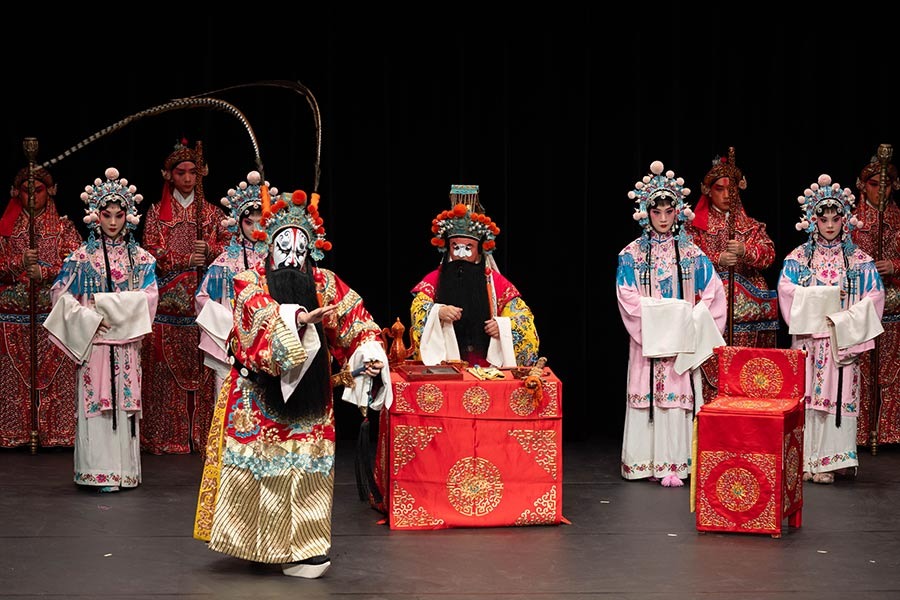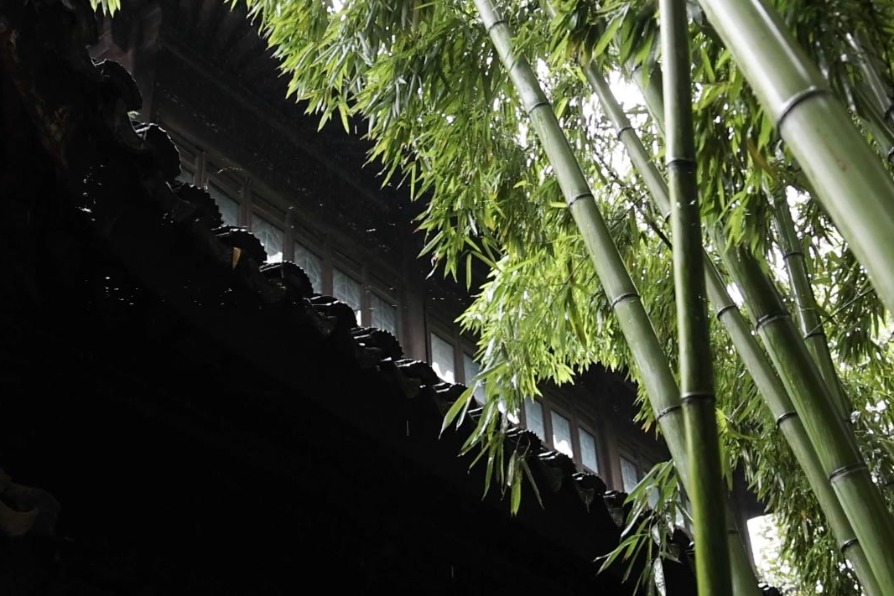Fragrance is the sweet smell of success for rural women cadres

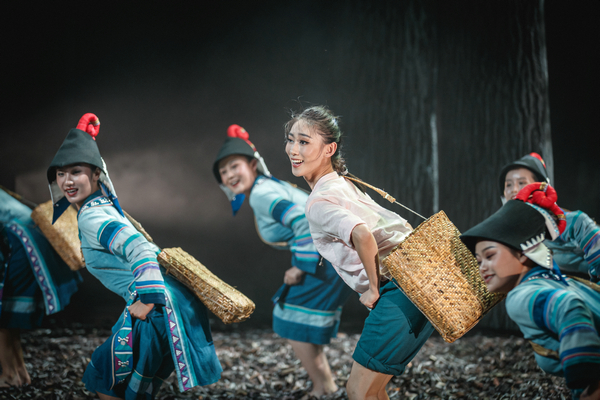
A Chinese idiom states that good deeds leave a fragrance for generations to come. A recent play takes the lingering fragrance of good deeds as its central plot as it highlights the feats of women and the differences they make.
Indeed, its name is Fragrance and it centers on the lives of the Lahu ethnic group from Yunnan province. They have lived a rudimentary existence of slash-and-burn farming for centuries. Female poverty alleviation cadres are now trying to improve their lives.
The dance drama premiered at the Yunnan Grand Theatre in Kunming, Yunnan province, and has just finished a run of performances at the Shanghai International Dance Center.
According to its director Zhang Shen, the title is a reference to the aroma of tea, which is a key part of the story, and it also applauds female power.
Based on the true stories of the cadres who came to assist poverty alleviation efforts in Datou village in Lyuchun county, Yunnan province's Honghe Hani and Yi autonomous prefecture, the dance portrays the struggles endured by the character Liu Tingting.
In the story, Liu, a resident cadre, faces challenges from her husband who blames her for not spending enough time with the family, and also from the locals who are unwilling to change their way of living. She then suffers amnesia after a car accident and struggles to recuperate and regain her memory.
"A major feature of Fragrance is that it does not follow a linear narration, rather, its structure comprises two interweaving storylines: Liu Tingting trying to retrieve her lost memory, and her poverty alleviation experience in the village. The two storylines come together at the denouement," Zhang says.
In the end, the locals agree to work with her in growing tea and selling the products on e-commerce platforms, which leads the village out of poverty.
The story is an accurate representation of the history of Datou village and its 33 households, all of which were registered as impoverished. In 2017, the Lyuchun county government allocated a team of cadres to the village, ensuring that each household was given one-on-one long-term support.
The village then began to establish basic infrastructure and develop modern agriculture, such as tea plantations and cultivating cloud ear fungus. According to the Yunnan provincial office of poverty alleviation and development, 31 counties, including Lyuchun county, were removed from the impoverished list by May.
Created and performed by the song and dance ensemble of Honghe prefecture, it is the third dance drama the troupe has staged in five years on the theme of the Chinese Dream of national rejuvenation.
"We framed Fragrance as a realistic dance drama on poverty alleviation. The story is based on the Lahu people in Yunnan province, so we have used some of their ethnic elements in our creation process. But essentially the story focuses on portraying the images of female poverty alleviation cadres," Zhang says.
After the ensemble first proposed the idea in December 2019, the dance drama was listed as a key project in 2020 by both the Ministry of Culture and Tourism and the Yunnan provincial government. To faithfully capture the local ethnic characteristics and portray the lives of the resident cadres, the crew went on field trips to the area.
"Some of the female resident cadres began crying when they started to talk about their experiences, either because they didn't get to see family members before they passed away, or because their husbands did not understand them," Zhang says. "Urban dwellers may not experience these things, but the cadres face them every day. Their lives are really hard."
The crew collected recordings of the local Lahu language and incorporated the recordings into the music. Local dance styles are also integrated into the drama to embody the ethnic culture, while still retaining the overall modern aesthetic.
Young dancer Li Xiaohui, in her 20s, plays the role of the protagonist. She says that she never experienced extreme poverty before doing research for the role and going on field trips to the area. "I could only feel shocked. The seemingly ordinary resident cadres are doing great work that can change the fate of a group of people and even a whole area," Li says.
"The biggest reward in playing the character is a state of mind. I now hold more respect for living creatures, cherish everyday life more, and put in more effort into my vocation."


